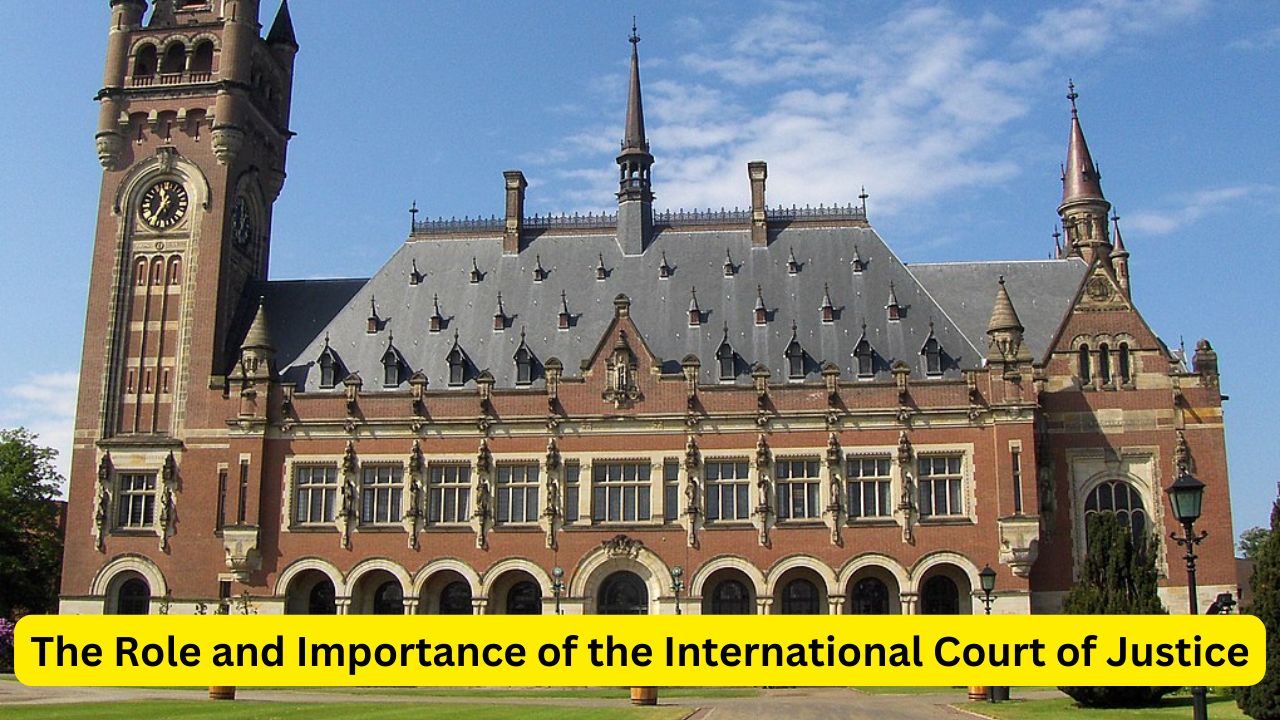Introduction
The International Court of Justice (ICJ), often referred to as the World Court, plays a crucial role in the maintenance of international peace and justice. Established in 1945 under the Charter of the United Nations, the ICJ is the principal judicial organ of the UN. This article delves into the functions, structure, and significance of the ICJ, providing a comprehensive understanding of its impact on international law and global governance.
History and Establishment
The International Court of Justice was established in 1945, replacing the Permanent Court of International Justice which had functioned since 1922. The court is located in The Hague, Netherlands, and its primary function is to settle legal disputes submitted by states and to provide advisory opinions on legal questions referred to it by authorized international organs and agencies.
Functions of the International Court of Justice
1. Dispute Resolution
One of the main functions of the International Court of Justice is to resolve disputes between states. These disputes can pertain to a variety of issues including territorial boundaries, maritime disputes, diplomatic relations, and violations of international treaties. The ICJ’s decisions are binding on the states involved, and although it has no direct enforcement power, its rulings carry significant moral and legal weight.
2. Advisory Opinions
The ICJ also provides advisory opinions on legal questions referred to it by the United Nations General Assembly, Security Council, or other specialized agencies. These advisory opinions, while not binding, offer authoritative legal guidance on complex international issues and help shape the development of international law.
3. Promoting International Law
Through its rulings and advisory opinions, the International Court of Justice plays a critical role in the development and codification of international law. By interpreting and applying international legal principles, the ICJ contributes to a more predictable and stable international legal order.
Structure of the International Court of Justice
The International Court of Justice is composed of 15 judges elected to nine-year terms by the United Nations General Assembly and the Security Council. These judges are chosen for their expertise in international law and their commitment to impartiality. The court’s President and Vice-President are elected by the judges for three-year terms.
1. Chambers and Committees
To handle the workload efficiently, the ICJ can form smaller chambers to deal with specific types of cases, such as environmental disputes or maritime issues. These chambers allow for more specialized and expedited handling of cases.
2. The Registry
The ICJ’s Registry functions as its administrative arm, handling the court’s documentation, correspondence, and general administration. The Registry also plays a crucial role in managing the court’s proceedings and ensuring that all procedural requirements are met.
Significant Cases and Impact
The International Court of Justice has presided over numerous landmark cases that have had a profound impact on international relations and law. Some notable cases include:
1. The Corfu Channel Case (1949)
This case established important precedents regarding the sovereignty of states and the right of innocent passage through territorial waters. The court ruled against Albania, holding it responsible for the damage caused to British warships by mines in the Corfu Channel.
2. The Nicaragua Case (1986)
In this case, the ICJ ruled against the United States for its support of contra rebels in Nicaragua and for mining Nicaraguan harbors. The ruling underscored the principles of non-intervention and respect for state sovereignty, significantly influencing international law on the use of force.
3. The Genocide Case (2007)
The ICJ’s ruling in the case involving Serbia and Montenegro established critical legal standards for proving genocide and state responsibility under the Genocide Convention. Although the court did not find Serbia directly responsible for committing genocide, it emphasized the obligation of states to prevent and punish acts of genocide.
Challenges and Criticisms
Despite its significant contributions, the International Court of Justice faces several challenges and criticisms:
1. Enforcement of Decisions
One of the primary challenges is the enforcement of its decisions. The ICJ relies on the cooperation of states and the support of the United Nations Security Council to enforce its rulings, which can sometimes be limited by political considerations.
2. Jurisdictional Limitations
The ICJ’s jurisdiction is limited to cases where states have consented to its authority. This consensual jurisdiction means that not all international disputes can be brought before the court, limiting its ability to address certain conflicts.
3. Perception of Bias
The court has faced criticism over perceived biases and political influences, particularly in cases involving major powers. Ensuring impartiality and maintaining the confidence of the international community remain ongoing challenges.
Conclusion
The International Court of Justice is a cornerstone of the international legal system, providing a forum for the peaceful resolution of disputes and contributing to the development of international law. Its decisions and advisory opinions have far-reaching implications, promoting the rule of law and helping to maintain international peace and security. As the world continues to grapple with complex legal and political challenges, the role of the ICJ remains as vital as ever.
